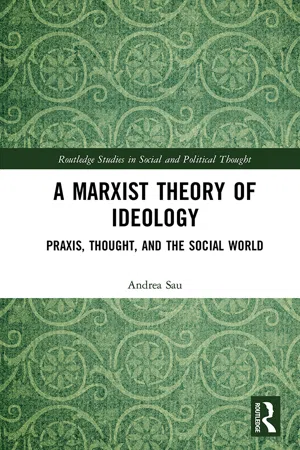Classical Marxism, neo-Marxism, and post-Marxism
This chapter will attempt to justify our enterprise. We will first discuss whether we need to return to Marx’s texts by addressing criticisms against his method presented by various thinkers, as well as some of the alternative frameworks proposed. After that, we will try to justify our project of creating a systematic theory of ideology based on Marx’s works. Then we will discuss the need for (yet another) theory of ideology. On the one hand, any attempt to construct theories has now been judged to be a doomed effort (especially by the postmodern tradition) at best, and at worst, a reiteration of rationalistic and metaphysical logics which serve the interests of dominant powers. On the other, theories of ideology are deemed impossible due to the contradictory epistemic stances they entail. Finally, we will discuss conceptions of ideology presented by Adorno and Žižek.
It would be impossible to address all criticisms of Marxism coming from all traditions. So, we will focus on some of the intellectuals who have been (to different extents) inspired by Marx, but that are critical of his enterprise. To make our discussion more intelligible, I propose some (schematic and rough) distinctions between different approaches to the study of society by reference to their relationship to Marx’s political economy. The first group (of which this work is an instance) could be called the ‘classical Marxists’. These are thinkers who state the importance of Marxist concepts such as ‘relations of production’, ‘class’ etc., while also attempting to reconstruct/develop historical materialism. We must bear in mind that there are hardly any authors who agree with Marx on everything, so that classical Marxists are not defined by their complete embrace of Marx’s thought, but rather by their efforts to develop his framework. Thus, authors as diverse as Althusser, G. A. Cohen, Eagleton, Rehmann, Alex Callinicos, Raymond Williams, Jon Elster, Brenner, and E. M. Wood could be considered ‘classical Marxists’. The second group is what we might call ‘neo-Marxists’. Despite borrowing some concepts from Marx and presenting a ‘materialist framework’, those thinkers (whether implicitly or explicitly) reject attempts to develop a ‘theory of history’. Authors in this category would be Horkheimer, Adorno, Žižek, Holloway, Cleaver, Werner Bonefeld, Negri, Gianni Vattimo, and Moishe Postone. The third group could be called post-Marxists. These are thinkers who, while acknowledging Marx’s importance, reject most of his concepts along with his materialism. Nevertheless, these thinkers see Marx as a precursor of their own ‘brand’ of critical theory. This group includes Castoriadis, Ernesto Laclau, Chantal Mouffe, Derrida, Michel Foucault and other post-structuralist/modern authors.
These distinctions do not do justice to the authors mentioned. They should not be used as schemas to analyse those scholars, who are all original thinkers that resist labelling. Furthermore, it is hard to draw the line between neo-Marxism and post-Marxism. One might argue (for example) that Žižek and Negri are better placed among the post-Marxists. It is thus important to understand that these categories have only been created for the purpose of this work, to explain how those authors stand in relation to it. They are simply tools to make things easier for those unfamiliar with critical theory.
As stated in the Introduction, what I propose here is a return to Marx and a reconstruction of historical materialism that relies on most of the concepts appearing in his works. Therefore, we must first justify our need to look back at the corpus of literature produced by Marx and ‘classical Marxist’ authors by answering the criticisms of neo-Marxists and post-Marxists while also showing that those thinkers’ frameworks cannot provide a solid basis for social analysis. Discussing criticisms of (what is perceived as) ‘classical Marxism’ is not only necessary to rebut those attacks and prove the ever-lasting importance of Marxist concepts, but also to highlight how certain interpretations of those notions are (as critics rightly claim) problematic. Therefore, I will not necessarily disagree with the arguments presented against certain ‘versions’ of Marxism. Indeed, it is important to take them seriously so that we can reject certain variants of historical materialism and begin (in a simplified manner at this stage) to construct the core features of our interpretation.
